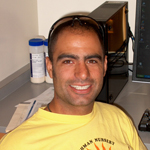 I’m very pleased to announce a new annual lecture to highlight the achievements of some of NIGMS’ early career grantees.
I’m very pleased to announce a new annual lecture to highlight the achievements of some of NIGMS’ early career grantees.
The first NIGMS Director’s Early Career Investigator Lecture will be given by Blake Wiedenheft, Ph.D., an assistant professor in the Department of Microbiology and Immunology at Montana State University who does research on the CRISPR gene-editing system. His talk, “Bacteria, Their Viruses, and How They Taught Us to Perform Genome Surgery,” will take place on Wednesday, April 13 from 2:00-3:00 p.m. EDT on the NIH campus. The lecture will be videocast and archived on the NIH Videocasting site.
Although open to everyone in the scientific community, this and future talks in the series will be geared toward undergraduate students. After describing their research, speakers will discuss their career paths during a 30-minute question-and-answer session.
We’re hopeful that these lectures will help inform participants about cutting-edge areas of science and inspire them to pursue biomedical research careers. I encourage you to tell your students about this opportunity to ask Blake career-related questions. They can send their questions by email to Jilliene Drayton before Monday, April 11, or tweet them with the hashtag #ecilecture.
Editor’s Note: An archived video of the lecture, including the question-and-answer session, is on the NIH Videocasting and Podcasting site.

